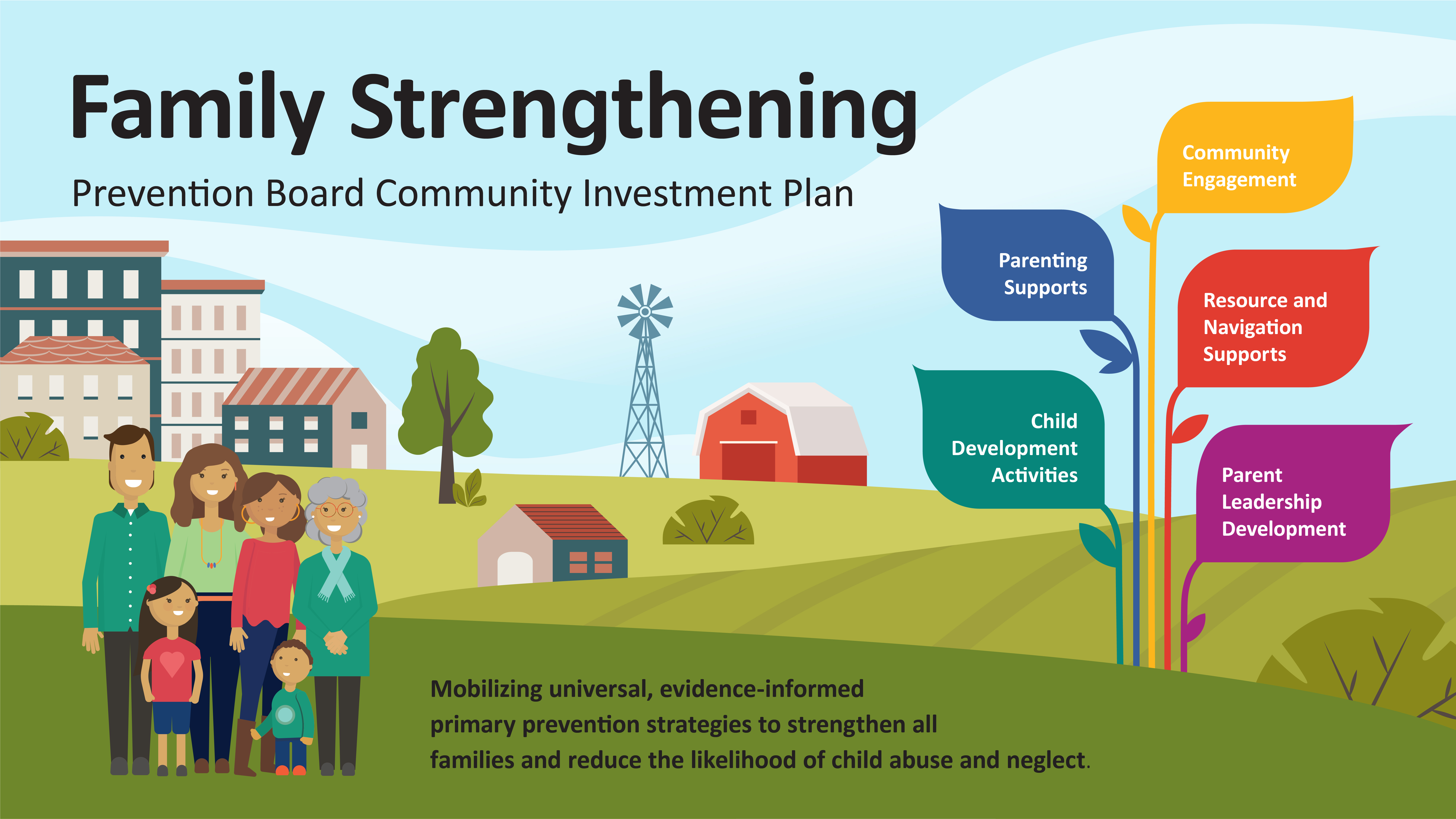Programming
The Wisconsin Child Abuse and Neglect Prevention Board (Prevention Board) provides grants to communities to strengthen families. Annually, the Prevention Board creates a Community Investment Plan that aligns with the Board’s multi-year strategic plan and priorities. The Prevention Board’s approach strives to build a continuum of community-based primary prevention services to strengthen families and communities across Wisconsin. The programs and services available for funding are grounded in a strengths-based approach, protective factors framework and research. More information on finding and selecting programming is found in the research to practice brief and program compendium, Choosing Quality Parent Education Programming. The Community Investment plan focuses the majority of funding on five areas that comprise the Family Strengthening Continuum. The five areas correspond with each of the core categories of services offered by family resource centers in Wisconsin.

Child Development activities, resources and services incorporate the five domains of child development: social and emotional development, health, and physical development (including fine and gross motor skills), language and communication, cognition and intellect and approaches to learning. Child development activities take a two generational approach, offering services directly to children and simultaneously equipping families in creating a home learning environment to support development of these domains while interacting with their children.
Parenting supports are services designed to provide parents with opportunities, knowledge, resources, and strategies to bolster their parenting skills and enhance the quality of their interactions and relationships with their children. This core service is often thought of as synonymous with parent education, but also includes engagement and family fun activities. The Prevention Board may also fund research and evaluation of parenting supports.
Parent Leadership Development comes from a perspective that parents have the greatest knowledge of and investment in their children and family and are, therefore, essential partners in the family strengthening approach. Parents can take a variety of roles at community-based agencies, including assisting with programming, representing the parent perspective, or sharing leadership skills and in their communities to support and advocate for the needs of families. Parents directly benefit from programming and services as participants. Parents and their children can learn new skills, make new social connections, recruit new parents, and provide feedback for improvements.
Resource and Navigation Supports are key to strengthening families. There is ample evidence that economic hardship and lack of ability to meet basic needs causes stress and negatively impact families. Community-based agencies often provide concrete supports directly and also serve as a conduit connecting families to other community services and resources, which help to alleviate stress and to promote child and family well-being.
Community Engagement: The multiple and varied efforts necessary to fully support the diversity of families in a community require the collaborative efforts of many individuals and organizations. Communities with a network of agencies that partner and engage with one another in an effort to surround families and children with accessible supports (i.e. quality child care, affordable housing, strong schools, libraries, and affordable activities) help to reduce stress on parents, allowing them to focus on creating secure and nurturing home environments.